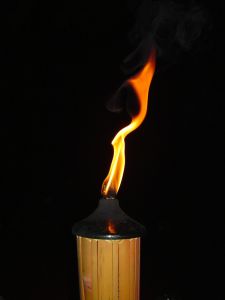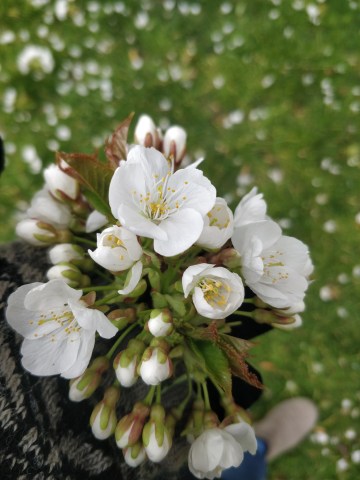Atheism

I got a lot of time for the Buddha. Fair bit of time for a lot of monotheistic figures too, though culturally I have been mostly exposed to Christianity and Judaism, and only in the last ten or so years a bit more to Islam. “Love thy brother” – cracking stuff. Cherish your community – cool beans.
Buddhism certainly has a nice line on a lot of nifty ideas. Learning to see reality – not as a constructed story, but for what it is. Humanity is built on shared stories, it’s how we’ve agreed on what British is, or what gender means, or how money works. Stories are our superpower, but they are also how we confine ourselves within narratives of things that are “true” without being real. I, as a woman, must be gentle and deferent – for centuries this was “true”. The reality is that so much of what we are is constantly in flux, constantly changing. Kudos to the Buddha for nailing that shizzle – thank you to many thousands of years of philosophers, theologians, scientists and scholars, sung and unsung, for sitting down and asking the question ‘but what if we’re wrong’? And to ask it with compassion – extra bonus points.
Yet for all that I have a fondness for all this, I remain, alack, atheist. This is significantly from how I was raised, in a stridently scientific way, and as a lot of kids will tend to follow a set path, so I wandered. But in more recent years I’ve poked deeper at the edges of theology, wondering, again as I suspect everyone does, whether there is something that gives both the pure wonder of knowing we are stardust, while also providing a story and moral framework based on subjective humanity that I can be part of. This is in no way a rejection of science – science is flipping awesome. Unlike faith, it offers the capacity, to paraphrase Tim Minchin, to turn on a die if God should suddenly appear and go “well, yeap, that’s happened, time to change my mind.” It’s merely a manifestation of that experience that life brings when who you were, changes, and keeps on changing, and you find yourself looking for an anchor in life.
At its best, many of the traditional faiths do superb community outreach, which is a big selling point. A methodist chapel has a fantastic project working with the homeless in the community; the local mosque raises a fortune for charities here and overseas; my Gran’s Jewish community fed, housed and looked after her in her final years even though she had no faith, because that was how a community behaves to all elders, no matter what. Cases abound of institutions doing good. Cases also abound of organised religion – not the theology itself, but the organisations that claim to espouse it – doing harm. Profiteering, othering, condemning, all in the name of a higher power that forgoes “love thy brother” in favour of an in-group holiness that ultimately, raises some people above others. There is a hubris in being “chosen”, for any group, but a general human hubris in believing that we as a species are “special” rather than an evolutionary outcome adapted for the planet we live on (thank you planet). I do not say this to condemn; I find it extraordinary, inspiring even to think we came from primordial mulch, and feel also that our lack of chosen-ness is a fabulous argument for really getting on with living a good life, now, here, and doing our fit to oppose social injustice and oh yes, climate change. If there is nothing after death, then blimey how we live now counts so, so much. Religion has often provided a moral code – but philosophy can provide one too, and decent ethics and the social contract do not need hellfire to be clearly, reasonably and profoundly powerful standards of behaviour.
In this vein, Buddhism does come the closest to ticking that box for me, in as much as worship has very little on sitting down and disentangling the narrative of our lives. However whenever I have come close to its actual trappings, my atheism has always kicked back in. In the east, lavish golden monuments and endless shrines where you may offer money and goods for promised miracles feel as familiar as Christian tithing, suggesting that giving materially will be a quick fix for all manners of spiritual woes. In the west, meditation – practiced in nearly all faiths in one form or another – rapidly devolves from being a sensible tool into a mystic answer promising magic, tranquility, and all-too-frequently medical wonders. It is incredibly human to make stories about ourselves, but the desire to see in every parable a truth that is ours, rather than the generally decent ideas that may have spawned it, comes akin to tarot card cold reads. “You have been sad,” sayeth the mystic, and yes! Yes, I have been sad at some point in my life, how did you know? “Your relationship with your family is sometimes not simple.” Well knock me down with a feather, how’d you know?
To belong is a human desire, hard-wired in our social brain. To be rejected triggers an alarm on a similar scale to intense physical pain. For millennia, religion has offered a belonging, and that’s often been great, and sometimes been horrific. Atheism does not give the same fluffy blanket, but then we live in an age where there’s so many different kinds of belonging available to us. There are also many ways to choose not to make people into “others”. It is not inconceivable to belong to humanity; not-special, not-chosen, amazing, dazzling, barmy, beautiful humanity. And looking at the grand sweep of history, I’m more comfortable with that than any other alternative.






